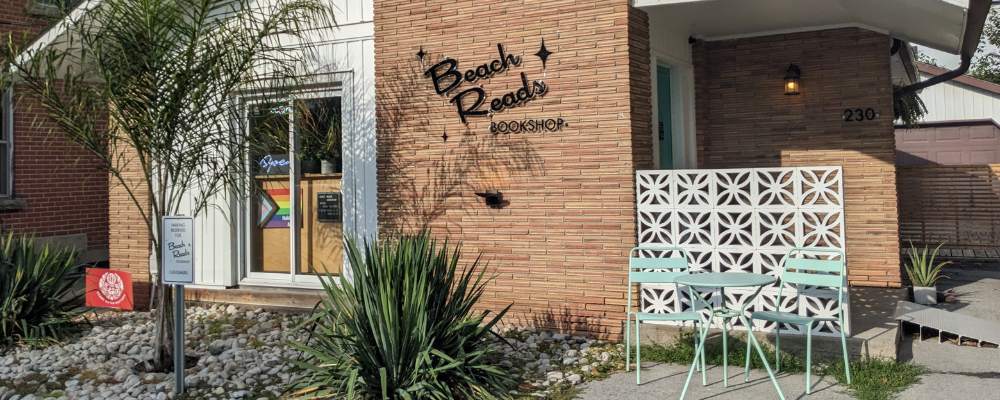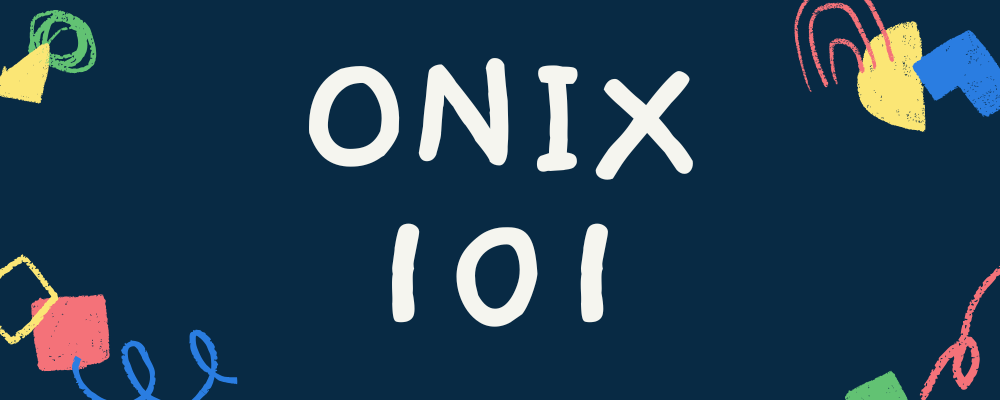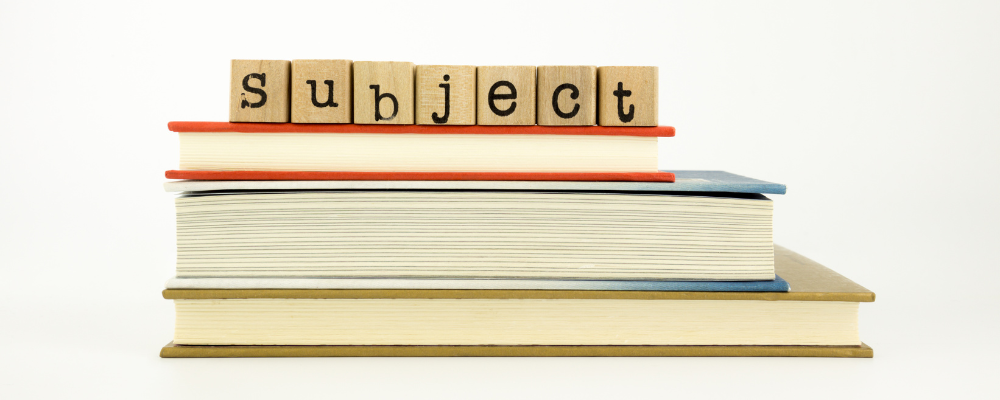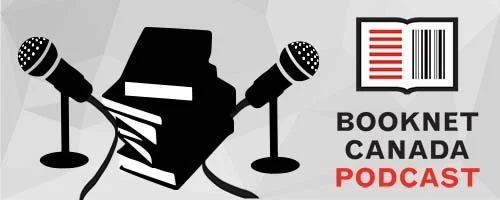In September, eBOUND Canada launched the Accessible Publishing Learning Network, an online resource library and community hub designed to empower publishers in Canada to create high-quality content that is accessible to all readers. We invited accessibility expert, Laura Brady, to tell us all about it in this podcast episode.
Want to make sure you never miss an episode of the podcast? You can subscribe for free on iTunes, Stitcher, Pocket Casts, TuneIn, or SoundCloud.
Further Reading/Listening
Transcript
Nataly Alarcón: Welcome to a new episode of the BookNet Canada podcast, I’m Nataly Alarcón, BookNet’s Marketing Associate. Today, we’ll be sharing an interview we recently did with Laura Brady about eBOUND Canada’s Accessible Publishing Learning Network. In our conversation, we talked about the resources available in the APLN, who is behind this project and why is it important, how can people in publishing get involved, and so much more.
But first, let me introduce our guest. Laura Brady is an accessibility expert whose priority is always to put users first. For the past fifteen years, she has worked in digital publishing creating and converting ebooks, training publishers on accessible workflows, writing a blog helping developers work more accessibly, and consulting for services organizations about how to publish inclusively while worrying about everyone’s reading experience. A sought-after consultant, trainer, and public speaker, Laura advocates with government funders, accessible library organizations, and publisher associations for disability issues. Laura is also active at sharing knowledge, building communities, and calling stakeholders in through community groups like #eprdctn, the Accessible Publishing Summit and ebookcraft, in addition to serving on the eBound and Accessible Books Consortium’s board of directors. In her free time, Laura reads books, watches baseball, and loves dogs.
Now, without further ado, let’s hear the interview.
Thank you so much for joining me today, Laura. I am so thrilled to have you here. We are gonna go through some questions, and you're gonna tell us more about the Accessible Publishing Learning Network. So, let's go with ... the first thing that we wanted to know is, what is the Accessible Publishing Learning Network, and why do we need it?
Laura Brady: Wow. I'm so happy to be here and to get to answer these questions and to talk about this latest project, which is so awesome. The Accessible Publishing Learning Network, which I often refer to as APLN, because, otherwise, it's a lot of syllables, is a repository of ... it's like a knowledge base and a Community Hub for people in the accessible publishing business. So, it is both a series of plain language posts, as plain language as possible, given that sometimes we're talking about highly technical stuff. But we've tried to really come up with a knowledge base that is written so that newbies can get into the space. We want to be welcoming and not intimidating with acronyms and highfalutin ten-cent words, you know, that sort of thing. We really want to be accessible so that people can learn about how to publish accessibly and inclusively without feeling like there's barriers to entry. Like, they need to do a bachelor of technology before they get started in the business. We want this to be easy.
We need it because, you know, working on accessibility is a bit of a, you know, it's very fashionable at the moment, but we need it because this is something that we really need to get through and to get over. The European Accessibility Act is gonna go into force in 2025, and I think it's due to create seismic change in the industry, in the publishing industry. You will not be able to sell any digital content in the EU if it doesn't meet stringent accessibility requirements, starting in 2025. So, this is a really big deal, and it's due to ripple out to other marketplaces. It's going to impact North America. Apparently, there was a meeting of the National Federation for the Blind in the US in which they talked about advocating for similar legislation there. And this is rippling out outside of the EU as well. In the United States, if you want to sell at an institutional level to libraries and institutions of higher education, you need to meet minimum requirements. Places like that that are state-run, for example, cannot purchase content that isn't fully accessible.
So, this is the zeitgeist, this is in the air. People need to pay attention to accessibility. Thank goodness, because this is... You know, publishing accessibly means that you're publishing really inclusively and democratically and you're hitting a broader market than you were before. You're adding 3 million Canadians to the marketplace in Canada alone when you're publishing accessibly. That's how many people in this country are print-disabled. So, that's in a substantial marketplace in a country of 35 million, you know, almost 10%. It's significant. And so publishing inclusively also makes really good business sense. I'll get off my soapbox now. So, that's why we need it. Legislation, inclusivity, good business decision.
Nataly: Wow, that is very interesting. And especially if people are thinking about expanding to new markets, they now have the time, what, 2022? So, three years, two years, a little bit more than that? And with these resources, there’s almost like no excuse, at least, to start getting … learning about, like, what is accessibility and everything. I love that. So, I think we touched a little on this, but can you tell us who can benefit from the resources available in the APLN?
Laura: Yeah, really good question. So, I think nearly everyone in a publishing house can benefit from those resources. There are some posts that are aimed at the rationale for creating accessible content. So, this is, like, you know, executives and business-level people, should be reading that content. Editors should be looking at the content, say, about how to use Word more effectively to set your content up for success. I really think that the key to moving the needle in the accessible publishing space is to get editors involved and invested in accessible publishing. And I strongly encourage them to come to the site, and to poke around, and to see the issues that are involved. Of course, it involves production staff, but it also ripples out to sales marketing and publicity staff.
Marketing staff at publishing houses should be using social media accessibly. There are lots of posts on there about how to do that a little better. There is a whole stream of content about how to make websites more accessible, which I think it's fair to say, every single publisher in Canada, could spend a little time with those posts and do better. I think almost everybody's website needs an audit. And then it also covers the full gamut of skill sets that you bring to the table. So, it's aimed at newbies, but there's lots of intermediate and lots of advanced content as well. And everything on the site is actually colour-coded. So you know if you click on an article and it's technically advanced and you don't wanna be there, you can click right back out. So, it has a colour associated with it, so it has a skill level on there. And, hopefully, that will make it easier to use and easier to filter to get at the kind of content that you want.
Nataly: That sounds great and super user-friendly as well. And I'm sure many people are gonna appreciate that and to be able to see their progress. And, you know, once they start from the very beginning and then seeing themselves going through resources that are a little bit more advanced, I think it's gonna make them feel good, and, hopefully, bring all that knowledge back to their companies and make changes. And I think that it also speaks to what we talk in almost every single accessibility-related session, which is, that the ultimate goal, and please correct me if I'm wrong, because, clearly, I am not an expert, but is to ideally get to a point where all publishing companies are making born and accessible books, right?
Laura: Yes, absolutely. I couldn't have said it better. That is absolutely the goal so that we're rolling accessibility concerns into the publishing process right from the start, right from acquisition, frankly. We could be covering accessible products in the contracts that we write. We should absolutely be rolling accessibility questions into editing, into formatting the manuscript before it even gets to production. Without question, rolling it into every stage of the publishing process means that we're creating born-accessible content and we are not having to backpedal at the end of the publishing workflow to fix things that should have been addressed three, four, five, six months ago.
Nataly: That's amazing. Okay. So what can users expect to find in terms of, like, formats of the content, the subjects? We talked a little bit about being colour-coded for beginners and advanced. What can you tell us about, like, what to expect once we get to the website?
Laura: So, all of the articles on the website, all the content on the website is organized by subject matters. So, there are a number of subject matters, ebook production, audiobook production, image subscriptions, metadata, website accessibility, digital marketing, and strategic planning. So, if you start at the beginning of one of those, if you click on one of those subjects and you start at the beginning, what happens when you're reading an article is when you get to the bottom, it suggests a path for where to go next, so with how to get deeper into that content. And it gets incrementally more technical, and deeper, and a little bit fuller. The website accessibility stuff, of course, is extremely technical almost from the beginning. But almost every other category starts out with fairly plain, easy, hopefully, short and simple-to-digest articles about how to get into this subject matter. And then if it's too easy, you just skip straight ahead and go deeper.
So, we have all the subject types, we also have resource types. So, there are a number of resource types, there's foundations and rationale, there's standards and best practices. Oh, gosh, I don't have them all the front of my head, but there's a number of ... there's checklists, there's to-dos, like, here's exactly how you get an EPUB out of InDesign and here's the steps you follow. The checklists are downloadable, and are particularly useful when you need to QA an ebook, for example, we have simple checklists and advanced checklists that are centred around the question of accessibility, and they're downloadable PDF which you can use in your workflow. Go ahead, take it, use it in-house. We also have some templates on there like Word templates that people might wanna use as they're creating content.
So, all of that, I hope it's fairly straightforward.
And when you come to the site and create an account, you can then favourite posts to save them for later. Or you just click a little heart at the top of the post and then you can save it so you can refer back to it later without thinking, "What's the name of that post? How do I find it again?" That sort of thing. The other really important piece of the puzzle is we've made really robust use of keywords on all of the posts. So, all of those are filterable. You know, by beginner level, like, there's a whole host of keywords that we use. In addition to filtering the post by type, we have a whole bunch of text-based posts, but there are a few video posts as well. We're aiming to kind of cover off all kinds of learners in this space so that we're making it, I hope, as simple as possible to get into accessible publishing and to get up-to-speed on what you need to know.
Nataly: That sounds great. Yeah. That was exactly what I was thinking about, like, all the different learning styles and how some people really like to read, some others are more visual learners. The checklist, I think that's an amazing resource because I know that a lot of people, at least during our sessions, have asked about those types of resources. And the fact that now they're being made available for free on a website that you can revisit anytime you want and you need, it's amazing. And, by the way, we are going to add a link to the APLN website on our notes so you can just go there and explore and see what you can find.
Laura: Yay.
Nataly: Right? Yeah, it sounds great. Okay. So, now that we talk a little bit about the website and the subjects, I wanna know who is behind the APLN, and also, how can accessibility experts and organizations contribute.
Laura: That second part is my favourite. So, who is behind the APLN? It is a project from eBOUND Canada. eBOUND Canada is kind of a division of the Association of Canadian Publishers. They're meant to help people in the digital publishing space. So, they got the project funding for this from the Department of Canadian Heritage through the Canada Book Fund and the Accessible Books Initiative. So, major funding came from there to make this possible. A lot of the content was written and created by the very smart folks at NNELS, the National Network for Equitable Library Services. And the website was put together by a team that eBOUND assembled, two people, Rose Shannon and Amanda Lee. Those are the project managers. And they used a web developer in Toronto called Day Shift Digital. I've just kind of flown in here at the end to look like I'm taking responsibility for it. I'm just sort of managing it now. I've written a few articles on there, but that whole team had a major impact on the site and really created it from the ground up, and I had nothing whatsoever to do with that. They did a fantastic job.
And then how can accessibility experts and organizations contribute? What a great question. So, there is a feedback form at the bottom of every page. If you want to contact the APLN site, you can just click that contact form and those emails will come directly to me. And when you do that, you're welcome to suggest topics that you'd like to see covered. You're welcome to submit some posts that you'd like to see up on the site. I am more than happy to entertain that without question, and you will get attribution, that's not a problem. If you find errors, you know, it's possible. If you find errors, I want to hear about them for certain. And then anything else. If you need some counsel on how to use the site, well, I'm more than happy to help with that. So, you know, that contact link is great. And then at the bottom of the website as well, there's also a Subscribe to our newsletter field. You know, accessible publishing is not static, it's a fairly dynamic space to work in. Things are always changing, best practices are always evolving, and we hope to communicate that through the newsletter.
Nataly: And we also noticed while we were using the website that there's a Community Hub. And I think you talked a little bit about that, but I'm wondering what that means because it sounds great, but I wanna know more, like, how can people get involved.
Laura: The Community Hub is a message board essentially. I think somebody, I think it was Jessica from ECW who suggested that we need something like a Reddit for accessible publishing knowledge. And so that's what this aspires to be. The Community Hub is broken up into the same categories as the subject. So, I think we have audiobook production, digital marketing, ebook production, image descriptions, etc. So, there's different forums, and within those forums, you can post questions about various things. So, there's sub forms called Discussion, Resources, and Questions. So, if you hit a gnarly production problem and you don't quite know how to find the answer, post your question there. And then, additionally, make visiting the Community Hub so you can contribute and answer other people's questions or comment on which the best resources are for this particular thing.
The more people engage in the Community Hub, the better it is. I would really love to see lots more people signing up and engaging in the Community Hub. And in order to use it, you do have to sign up for an account. You can't just use it as a guest. Unfortunately, that's a bit of a limitation. But we respect everyone's privacy. We will not use that information, of course. In fact, I can't even see it in the back end. I mean, I probably could, but I'm not that smart. So, the Community Hub, I think it's poised to be really amazing resource, especially for people who are new to this space. It has the potential to be a really great tool.
Nataly: It also makes me think about like the #eproduction hashtag that I see floating on Twitter all the time and people asking questions and answering from all over the world, not just Canada. Because I remember seeing questions from a person I met during Tech Forum 2019, and she's from Brazil, and then people from France, and, you know, like all of over.
Laura: Yeah, yeah.
Nataly: That is so exciting.
Laura: That's a really great thing about this community. The #eproduction hashtag on Twitter is full of incredibly smart, very generous people who are willing to share how to troubleshoot a problem. And if they could all migrate to the APLN and Community Hub, boy, I would give out cookies, I tell ya. And the other thing is that there is really people genuinely from all over the world. So, one of the Community Hub posts earlier this week was from someone in England who is trying to make the case for her company to publish more accessibly. And she was wondering about costs, which is such a great question. There are costs associated with it, especially as you're getting set up. So, that's a really sophisticated question and a great one to put there.
Nataly: Yeah. I think that, you know, like opening the door to collaboration and I think that, you know, even... We have had people talking about what they're doing in terms of accessibility from Italy and some other countries. And it's always so interesting to see where they're at, what they're doing differently, you know, what programmes their governments have. So exciting.
Laura: Really genuinely is. I think that the key to moving forward in this space is collaboration. There's no point working away, say, at, you know, how to do accessibility metadata in Canada alone. That's ridiculous. The supply chain is broad. If you're going to work away at sort of solving the question of accessibility metadata, you have to work in an international way. You can't just do it in isolation. And the same is true from creating an accessible audiobook or social media best practices. This isn't unique to Canada. These are things that are happening all over the world, like, genuinely all over the world. So, I'd love to see more people from Asia participating, actually. That would be great, yeah.
Nataly: Maybe someday, once the word gets out. Yeah, I think they will join at some point. Especially, you know, because, I think if for some people, I don't know, I guess maybe one of the barriers to doing more of this work is lack of access to this type of knowledge. Many times, you have to pay. Or in terms of time, you have to attend life an event, and then you cannot actually revisit that resource later on. So, I think that this opportunity of having that content on demand, it's amazing. And I think that fulfils that need, and, hopefully, encourages them to do more of this work, right?
Laura: Yeah, it's really foundational that this knowledge base be open too and accessible to anyone anywhere. There's no barrier to admission, except for the fact that it's in English and only English. So, you know, that's an issue. But you can't lock this kind of content away, it must be shared. In order for us to really move the needle on accessible publishing, it has to be open and available to everybody.
Nataly: Out of curiosity, are there any plans to translate it to other languages, maybe down the line in the future?
Laura: Yeah, so there are some people in Quebec looking at translating it into French. So, that's underway, I think. I could be wrong about that, but we did talk about that early on. We do want it to be available in French as well. We are looking at working with other projects around the world. So, in the Netherlands, for example, there's an organization called Datacon that's working on almost a parallel complement to the APLN that is in Dutch, German, French, and English, and Spanish too, I think. And so those sorts of things are happening, and it would be great to sort of sync up and to get more of our content translated as well. That is definitely blue-sky thinking, as they say. But, yeah. For now, English is definitely the dominant language around the APLN universe.
Nataly: Okay. Okay. That sounds good. Still promising, still, you know, you never know. I would love to see it in Spanish myself, but that's my own bias.
Laura: Yeah.
Nataly: Okay. So, we talked about the Community Hub, we talked about content. And I think you might have answered this a little bit there when we talk about like how this is changing all the time, and there are new things happening. But we are wondering if there will be more content to look forward to in the future.
Laura: Yeah, for sure. So, there are actually a whole bunch of fresh posts in the work. Unfortunately, I'm a little bit busy, so they're not going as quickly as I hoped they would. But I hope in the future to have a budget to actually pay people for content so that we can ask the real experts in the field. I know a lot, but I don't know everything by a long shot. And there are lots of really smart people working in this field who I would love to pay to contribute. And I hope that that's something we can do not so far down the road. We do need to flesh out the sort of higher and more technical stuff. So that will be coming. We've really focused on beginner knowledge bases for now. So, there are lots of plans in the works to go a little bit deeper, a little bit farther. And, hopefully, it won't be too long. So, we get some of that going.
Nataly: And I'm guessing that one of the best ways to stay on top of the content and what's recently added is through the newsletter.
Laura: That's exactly right. When we publish new content, we will highlight it in the newsletter so that people who feel like they've read everything that's already there, which would be super amazing, but then they will know which ones are new and where to go to look for fresh content. Yeah. Yeah. In the newsletter, we may highlight really interesting exchanges in the Community Hub as well because there are things percolating there that are worth sort of getting more oxygen to them.
Nataly: Those were all the questions that we had, but is there anything else that you wanted to share with us, with our listeners about the project, about what's going on in inaccessibility in Canada?
Laura: Yeah. So, if you use APLN, feel free to tweet articles straight from the site. There are social media share buttons. The more it's shared, the more it's used, and then the more useful it is. Do share it with your colleagues, international or otherwise. Share specific articles. Share, share, share, basically. Share it on LinkedIn, share it wherever you can, wherever your networks are. The more people using it, the better it is without question. So, you know, don't be shy. This isn't a closed universe. I want lots of eyeballs.
Nataly: Thank you so much, Laura. Thank you for your time. This was an amazing conversation. I'm really looking forward to seeing what other content gets added. I myself, am really interested in what is happening in the marketing subject. I know that there are times when you think that you know everything, but you truly don't. And it's always great to just go through things, and revisit, and see how you can change and make things better. Thank you so much for your time. This was great.
Laura: I'm really happy to be here. Thank you so much for inviting me and for helping me publicize APLN.
Nataly: Before I go, I’d like to take a moment to acknowledge that BookNet Canada staff, board, partners, and our makeshift podcast studio, operate upon the traditional territories of the Mississaugas of the Credit First Nation, the Anishinaabe, the Haudenosaunee, and Wendat indigenous peoples, the original nations of this land. We endorse the calls to action from the Truth and Reconciliation Commission of Canada and support an ongoing shift from gatekeeping to space-making in the book industry. And we hope that our work, including this podcast, helps to create an environment that supports that shift. We'd also like to acknowledge the Government of Canada for their financial support through the Canada Book Fund. And of course, thanks to you for listening.













Learn how BISAC positions your book so the consumer can find it.